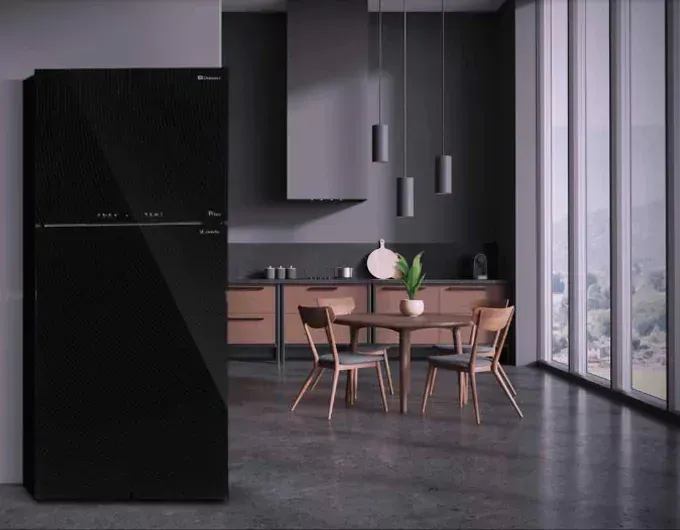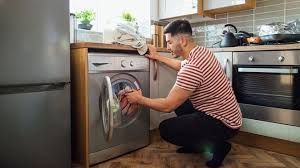Most Asked Questions About Refrigerator Leak Repair
Q: Why is my refrigerator leaking water on the floor?
A: Your refrigerator may be leaking water on the floor due to a blocked defrost drain, which causes water to overflow. Other common causes include a damaged or misaligned door gasket, a faulty water filter, or a clogged water supply line. Checking these components and clearing any blockages can often resolve the issue.
Q: How do I fix a leaking refrigerator water line?
A: To fix a leaking refrigerator water line, first, unplug the refrigerator and shut off the water supply. Inspect the water line for any kinks, cracks, or clogs. If the line is damaged, replace it with a new one. If it's frozen, gently thaw it using a hairdryer. Reconnect the line securely and turn the water back on to check for leaks.
Q: Why is water collecting in the bottom of my refrigerator?
A: Water collecting in the bottom of your refrigerator is often due to a clogged defrost drain. When this drain becomes blocked, water from the defrost cycle cannot flow into the drain pan and instead accumulates at the bottom of the fridge. Clearing the drain using warm water and ensuring it's free from obstructions should resolve the issue.
Q: What causes a refrigerator to leak from the back?
A: A refrigerator leaking from the back is usually caused by a problem with the water supply line, either due to a loose connection, a kink, or a crack in the line. It could also be due to a faulty water filter or a drain hose that has become disconnected or damaged. Inspecting these areas and making necessary repairs can stop the leak.
Q: Is a leaking refrigerator dangerous?
A: A leaking refrigerator can pose risks, especially if water pools near electrical components, increasing the chance of electrical shock. Additionally, persistent leaks can lead to mold growth and damage to your floors. Addressing leaks promptly by identifying and fixing the source is crucial for safety and preventing further damage.
Q: How often should I replace the water filter in my refrigerator to prevent leaks?
A: It’s recommended to replace the water filter in your refrigerator every six months, or as specified by the manufacturer. A clogged or old filter can cause water pressure to build up, leading to leaks. Regular replacement ensures optimal water flow and reduces the risk of leaks.
Q: Why does my refrigerator leak only sometimes?
A: Intermittent leaks in a refrigerator may be due to fluctuating humidity levels or partial blockages in the defrost drain. High humidity can cause excess condensation, leading to leaks. Alternatively, debris in the drain may allow water to pass only at certain times. Addressing these issues can help stop the occasional leaks.
Q: Can a refrigerator leak refrigerant, and how can I tell?
A: Yes, a refrigerator can leak refrigerant, though it’s less common than water leaks. Signs of a refrigerant leak include a warm fridge, the sound of hissing, an oily residue around the compressor, and a noticeable chemical smell. If you suspect a refrigerant leak, it’s important to contact a professional technician, as handling refrigerants requires specialized knowledge and tools.
Q: What should I do if my freezer is leaking water?
A: If your freezer is leaking water, it could be due to a blocked defrost drain, excessive frost buildup, or a faulty ice maker. Start by checking and clearing the defrost drain, and ensure the freezer temperature is set correctly to prevent excessive frost. If the ice maker is the issue, inspect the water line and replace any damaged components.
Q: Why is my refrigerator leaking after I changed the water filter?
A: If your refrigerator starts leaking after you’ve changed the water filter, the filter may not be installed correctly or may be the wrong size. Double-check that the filter is properly seated and that it matches the model of your refrigerator. If the problem persists, consider trying a different filter or contacting the manufacturer for assistance.
You might also like
Educational Center
Book a Service Today
We will get back to you as soon as possible
Please try again later
Quick & Reliable
We are available 24/7
About Us
Authorized Appliance is an appliance repair contractor referral service. We connect you with appliance contractor in your area. All contractors are operated independently of Authorized Appliance. It is the responsibility of each user to verify that the contractor connected with meets all licensing and insurance requirements in that jurisdiction.
All Rights Reserved - Authorized Appliance




